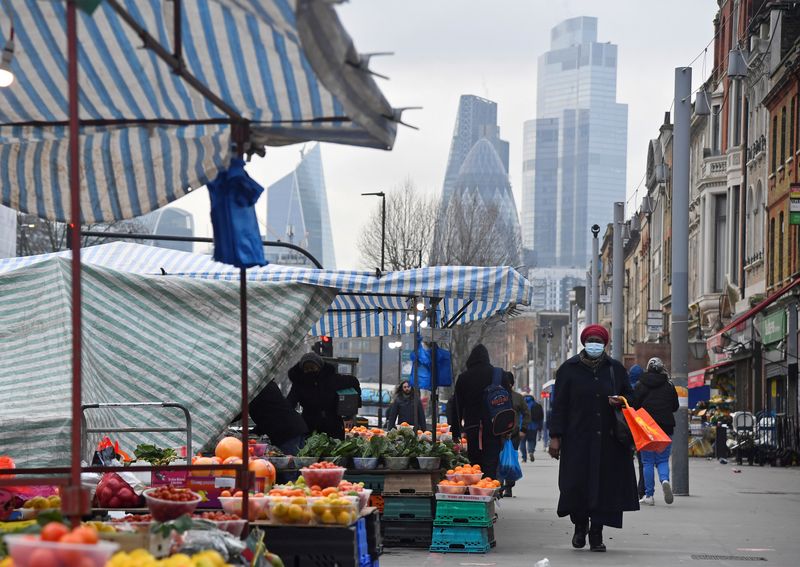One in four UK single parent households unable to afford food
2023.07.14 09:59

© Reuters. FILE PHOTO: People shop at market stalls, with skyscrapers of the CIty of London financial district seen behind, in London, Britain, January 15, 2021. REUTERS/Toby Melville/File Photo
By David Milliken
LONDON (Reuters) – More than a quarter of Britain’s single parent households have recently run out of food and been unable to afford more, according to a survey from the country’s statistics agency which highlights the impact of surging inflation.
Out of nearly 15,000 households surveyed between Feb. 8 and May 1, 5% said they had run out of food in the previous two weeks and been unable to buy more, rising to 28% for households with a single parent and at least one child.
Consumer price inflation hit a 41-year peak of 11.1% in October 2022, and food price inflation reached its highest since 1977 in March at more than 19%.
British supermarkets say prices are now beginning to come down, although figures from the British Retail Consortium trade body showed that prices in June were still nearly 15% greater than a year earlier.
The Office for National Statistics will release its June inflation data on Wednesday.
Britain’s main welfare benefits rose by 10.1% in April and the government provided extra support for energy bills.
Despite this, 21% of benefit recipients still reported running out of money for food, the ONS said.
Pressures are greatest for larger families, as support payments since 2017 have been limited to a maximum of two children per household, with limited exceptions.
The ONS survey also showed that people renting their homes were generally under greater financial pressure than homeowners with mortgages. Forty-three percent of renters said it was very or somewhat difficult to afford their rent, compared with 28% of people with mortgages.
Bank of England interest rates have increased to 5% from 0.1% in December 2021 and are expected to rise further, prompting the government to request lenders give mortgage-holders in arrears up to a year before repossessing their homes.
Tenants who miss rent payments generally have less time before facing eviction. Some small landlords are also selling up or raising rent in response to higher mortgage costs and increased regulation on the sector.








